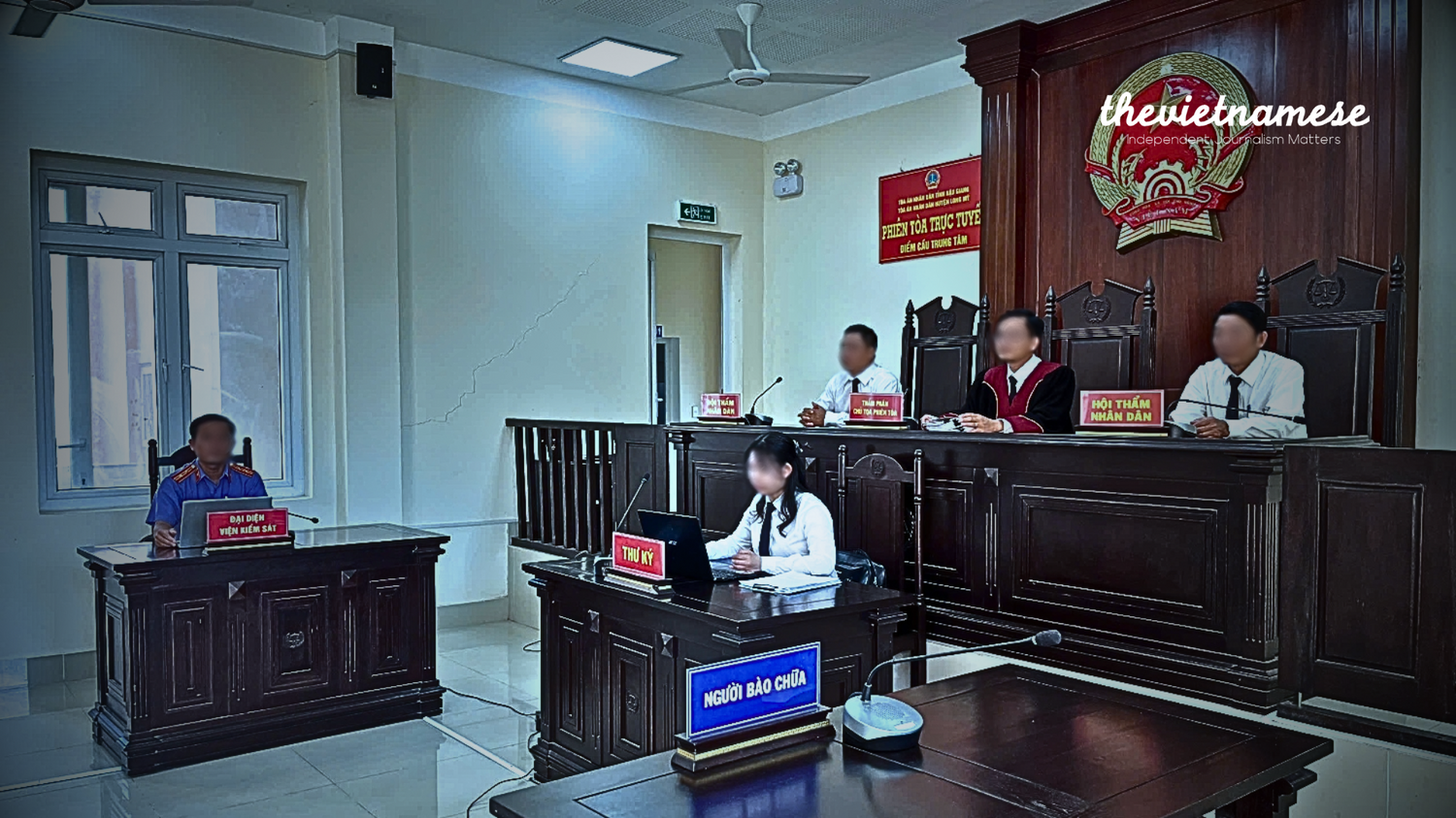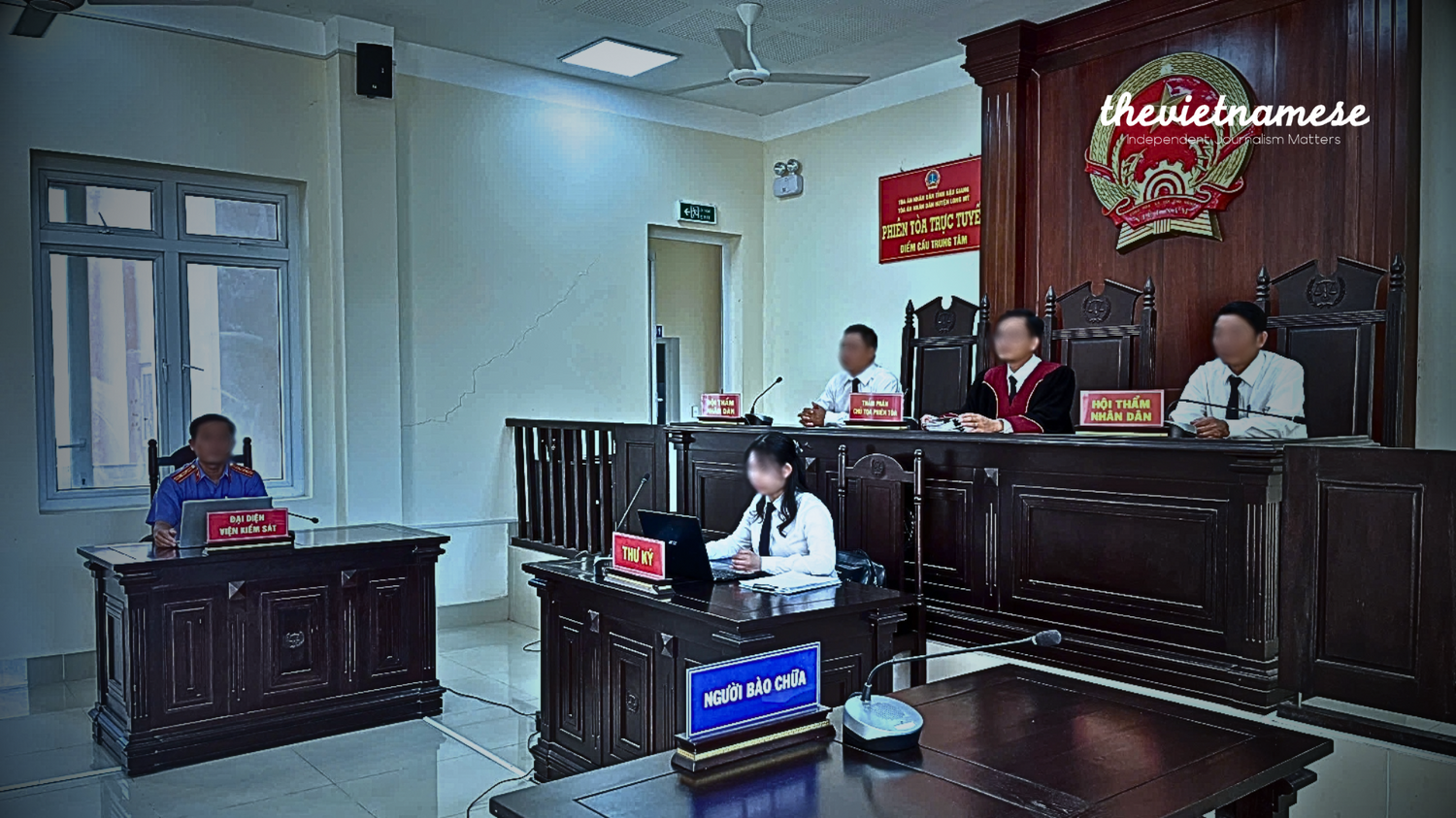
Mai Linh wrote this article in Vietnamese, published it in Luat Khoa Magazine on March 20, 2025. Đàm Vĩnh Hằng translated it into English for The Vietnamese Magazine.
“Everyone already knows that. No need for the lawyer to repeat it.”
“Move on to the next part.”
“Hurry up.”
Those were the words of a judge during a civil trial I had the unfortunate privilege of witnessing—a scene that remains vivid in the minds of everyone involved. Months have passed since the appellate hearing concluded, but in my hometown, the case remains a hot topic.
It all began when a cousin filed a lawsuit accusing his younger sibling and spouse of seizing ancestral land. At first, the conflict seemed like any other family dispute. But in a small rural community, a land dispute between blood relatives is enough to fuel weeks of whispers. After an unexpected ruling in the first trial, the matter escalated, and both the plaintiff and the defendant became determined to win—at any cost.
As a relative of the defendants, I had the chance to closely follow the entire process. My aunt and uncle placed full faith in their documents and evidence; they had lived on the land for decades and possessed legal land-use certificates. In their minds, the outcome was clear. But the trial shattered that confidence.
Regardless of their legal arguments, what stood out was how the trial was conducted. Even before arguments began, during the judge’s questioning, anyone watching could already sense the verdict. One side was bombarded with pointed, hostile questions, while the other was shielded from difficult cross-examination. It was painfully clear who was favored and who was being set up to lose.
When reviewing a transcript from the appellate stage, my aunt and uncle were stunned to see their statements either misrepresented or entirely omitted, with words even inserted into their mouths. That was when I truly grasped the cynical saying: “A civil case can be ruled however the court wants.” In a maze of overlapping and conflicting laws, what tips the scale is not evidence, but money and connections.
With both, those overseeing a trial can become more than neutral arbiters; they become de facto legal strategists for their “clients”—drafting arguments, scripting responses, and even pre-writing the verdict. Of course, not all judges behave this way and not every case is bought. But a fair and honest civil trial has become a rarity.
Bribes, Bargains, and Broken Trust
After their crushing loss in the lower court, my aunt and uncle appealed. This time, they hired a lawyer, having previously relied on their evidence and the mistaken belief that justice would prevail. Legal fees were steep for farmers like them, so they borrowed money, putting both their finances and their hopes on the appellate ruling.
Then came a twist. Before their lawyer could even make contact, the judge called him first to “discuss terms.” The price for a favorable ruling? 250 million đồng (about $10,000). My aunt and uncle weren’t surprised; rumor had it the plaintiff had already paid nearly 300 million đồng to win the first trial. They agreed and sent the money through the lawyer.
But the demands didn’t stop. Days later, the judge called again, this time asking for an additional 100 million đồng, supposedly to “work with” the prosecutor’s office. When the lawyer hesitated, trying to negotiate on behalf of the poor family, the judge answered bluntly: “Market value is always higher than the appraised amount. If you want your appeal accepted, send the money.”
The judge clearly understood the psychology of such disputes. For both families, this was no longer just about land; it was about honor; each side was desperate to prove they weren’t the “land thief.” Despite the indignity, the extra payment was made. Everyone was confident that the ruling would be overturned.
The court date arrived, but my ailing aunt and uncle stayed home, sending a few relatives in their stead.
On the day of the trial, the plaintiff and their lawyer both requested to be absent. During the hearing, the judge interrupted our defense attorney multiple times, brushing him off with the same curt remarks:
“Everyone knows that already.”
“Move on.”
“Hurry up.”
The tone was dismissive, condescending. The process was rushed, with the same line of questioning from the lower court making a return. When the court paused to deliberate, the lawyer received a text message: all the bribe money would be returned.
I sat there in a haze, unable to comprehend what had happened. Had the judge received instructions from higher up? Did the plaintiff simply outbid us? Or was it something else entirely?
We may never know.
After the ruling was read, our lawyer stood frozen, unable to face the family waiting outside. In a final effort, he suggested taking the case to the Supreme Court, but no one believed in the Vietnamese justice system anymore.
“We’ll just accept losing the land,” my aunt said. “Fighting further will only waste more time and energy, for the same result.”
And with that, the case was closed. With bitterness and defeat
A Normal Day in Court
The true tragedy is that this wasn’t an extraordinary case. It was a perfectly normal civil trial in Việt Nam.
Each day, more such trials unfold across the country. People turn to the courts seeking fairness, but all too often they leave with deeper wounds, their conflicts unresolved—sometimes even inflamed. An unfair civil judgment can quickly become the seed of something darker: criminal acts, violence, and bloodshed.
Bribery has become an almost accepted part of the process, yet hardly any corrupt judges are held accountable. In the end, it’s always the poor who suffer. Caught in legal limbo, the only hope for ordinary people is to pray that their case lands in the hands of a just judge. Otherwise, they simply endure the injustice.
I had heard stories before—of corruption, of manipulated trials. From veteran lawyers to first-timers, most understand the unspoken reality: “Justice can be bought.” Many lawyers struggle with their consciences, knowing they’ve become mere intermediaries in this toxic transaction between citizens and the state.
Even the most idealistic must eventually face the truth: a carefully crafted legal argument stands little chance against a well-timed bribe. The ideals enshrined in Việt Nam’s 2015 Civil Procedure Code—fairness, impartiality, timely trials, open proceedings—are far removed from this reality.
Now, whenever I pass a courthouse and see tired, anxious faces waiting outside, I wonder: How many of them will be protected by the law? And how many will walk away defeated and empty-handed? If someone dares to speak out publicly, they risk being charged under Article 331 of the Penal Code for “abusing democratic freedoms.”
And so, most people sigh and whisper the old, weary saying:
“Vô phúc đáo tụng đình,” which means, only the unfortunate, unblessed end up in court.

